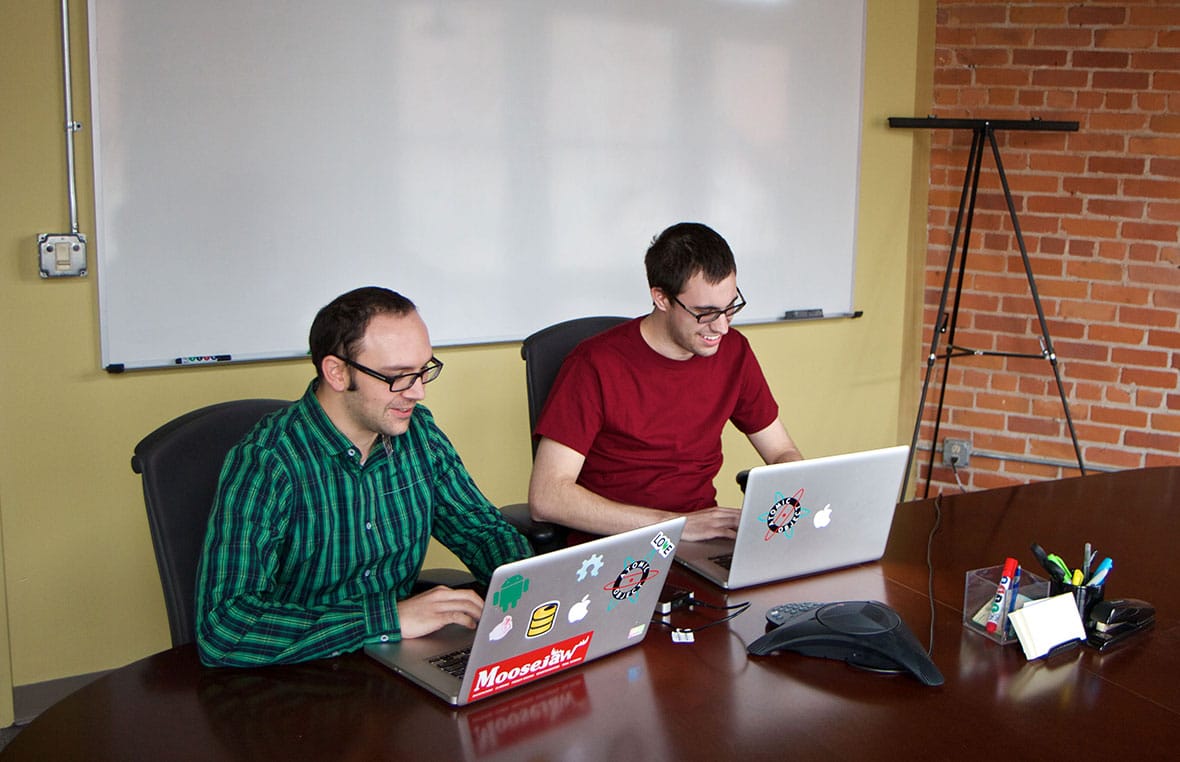I’ve been with Atomic for two years now, and one of the most difficult things for me to learn was how to stick my neck out and try new things — especially things that could end up looking like a waste of time or money.
Atomic has a great culture that encourages taking ownership, making lots of experiments, and learning from mistakes. This attitude sounded great in principle, but I found it extremely stressful. As a high-S, high-C personality, it’s very important to me that I:
- look competent, and
- avoid conflict.
So naturally, I avoid risk like the plague. College and past jobs had taught me to be good at getting all my ducks in a row (which was my natural inclination anyway), but none of them taught me to experiment and not be afraid of messing up.
The Stagnating Security of Bureaucracy
My previous job was at 40-year-old engineering firm with a hierarchical structure and a strong resistance to change. When someone had an idea, everyone else’s first response was to start listing all the things that could possibly go wrong. This attitude has benefits when you’re building a bridge, but when you need approval from all 5 members of the Board before you can buy $400 worth of trade show trinkets, it makes trying new things a whole lot more difficult.
I gradually got better at playing the system, but it still took an incredible amount of personal energy and time — sometimes more than five years — to change anything. Eventually, it just wasn’t worth it.
As frustrating as this attitude was sometimes, it was also very comfortable. Everything I did had been reviewed and approved by several layers of management, so I didn’t have to justify myself to my peers or really listen to their criticism. And when new initiatives were approved, they immediately became part of the marketing status quo and were never evaluated again (unless I did so myself).
Embracing the Freedom to Fail
When I first came to Atomic, I found the experimentation culture very stressful, because it felt like a “lack of oversight.” When I had an idea, Carl (our CEO and my supervisor) would listen to me explain it, ask a few questions to make sure I’d thought it through, and then say, “Okay. Why don’t you try that for a few months, and see how it goes.” Moreover, when I asked for a few hundred dollars (e.g., to purchase some advertising, or experiment with a SAAS product, or attend a conference), Carl usually said, “Sure.”
That was it — no worries, no written requests, and no requirement to run it by four other people. Just an expectation that I would record and track what I was doing, then evaluate it a few months later to judge its success.
At first, this floored me. And terrified me. If told Carl noticed my surprise, and he’d say something like, “If you think we need it, get it. I trust you.” I’ve since learned that also implies, “I trust you to review this regularly, evaluate whether it’s successful, and make a well-informed decision whether or not to keep doing it.”
Of course, I still haven’t stopped trying to get my ducks in a row. I always prep for these conversations, and when projects are complicated, I write a plan to help me stay on track. I’ve learned to enjoy experimenting, and I want to run the smartest tests and get the best results I can.
Atoms Love to Tinker
Atoms have a lot to say about our habit of experimentation. If this topic interests you, here are a few other blog posts you should check out:
- It’s not a mistake, just a failed experiment by Carl Erickson

